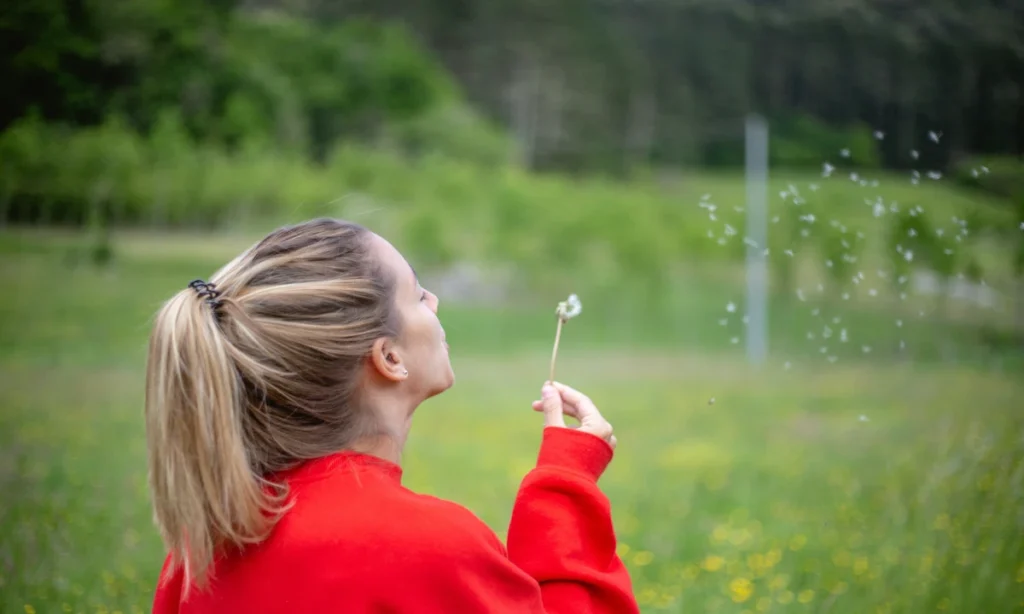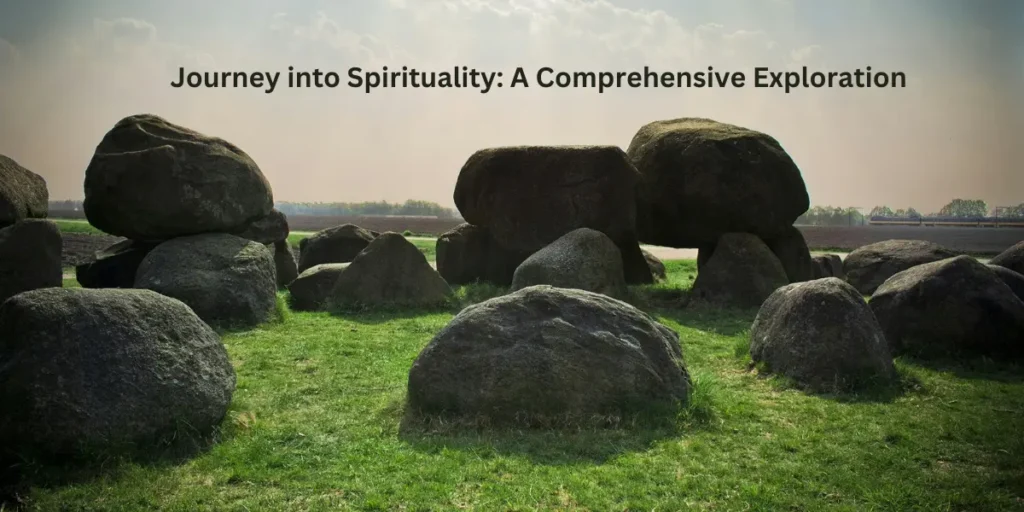Journey into Spirituality: A Comprehensive Exploration delves into various spiritual practices and their impact on personal growth. It guides readers through understanding and embracing spirituality.
Spirituality offers a path to inner peace and self-discovery. This comprehensive exploration covers different spiritual traditions, meditation techniques, and mindfulness practices. Readers will find practical advice and insights to deepen their spiritual journey. The book discusses the benefits of spirituality, including enhanced emotional well-being and mental clarity.
By integrating spiritual practices into daily life, one can achieve greater balance and fulfillment. This guide serves as a valuable resource for anyone seeking to explore the profound aspects of spirituality. Embark on this journey to connect with your true self and experience transformative growth.

Defining Spirituality In The Modern World
Exploring spirituality in the modern world involves understanding personal growth, inner peace, and connection to something greater. This journey delves into diverse practices, beliefs, and experiences, offering a comprehensive exploration of spiritual paths.
Spirituality has undergone a significant transformation in recent years. This shift is influenced by various cultural, social, and technological changes. Understanding what spirituality means today is essential for anyone exploring this profound journey.
The Evolving Definition Of Spirituality
Spirituality is no longer confined to traditional religious practices. Today, it encompasses a broader range of experiences and beliefs. It often involves a personal connection to something greater than oneself, which can include nature, art, or even personal relationships. This shift allows individuals to find meaning in diverse ways.
Key Elements Of Modern Spirituality
Several components define modern spirituality. These elements highlight how people connect with their inner selves and the world around them:
- Mindfulness: The practice of being present in the moment and fully engaged with the current experience.
- Personal Growth: A focus on self-improvement and understanding one’s purpose in life.
- Connection: Building meaningful relationships with others and feeling a sense of belonging.
- Compassion: Showing empathy and kindness towards oneself and others.
- Inner Peace: Achieving a state of tranquility and harmony within oneself.
Spirituality And Technology
Technology plays a crucial role in modern spirituality. It provides tools and resources that help individuals explore their spiritual paths. Apps for meditation, online communities, and virtual retreats are just a few examples. These tools make spiritual practices more accessible and adaptable to busy lifestyles.
Diverse Paths To Spirituality
There are many ways to embark on a spiritual journey. Each path is unique and personal:
- Meditation: A practice of focusing the mind and achieving a state of calm and clarity.
- Yoga: Combining physical postures, breathing exercises, and meditation for holistic well-being.
- Nature Connection: Spending time in nature to foster a sense of peace and connection.
- Creative Expression: Using art, music, or writing to explore and express spiritual beliefs.
- Volunteer Work: Engaging in acts of service to develop a sense of purpose and compassion.
The Role Of Community In Spirituality
Community is a vital aspect of spirituality. It provides support, shared experiences, and a sense of belonging. Spiritual groups, both online and offline, offer a space for individuals to connect, share their journeys, and grow together. These communities can range from local meditation groups to global online forums.
Spirituality And Mental Health
Spiritual practices can significantly impact mental health. They offer tools for managing stress, anxiety, and depression. Practices like meditation and mindfulness improve emotional well-being and resilience. By integrating spirituality into daily life, individuals can enhance their overall mental health and find greater balance.
Exploring spirituality in today’s world involves understanding its evolving definition, embracing diverse practices, and recognizing the importance of community and technology. This journey is deeply personal and offers numerous benefits for those willing to embark on it.
The Intersection Of Spirituality And Religion
Discover the profound connection between spirituality and religion in “Journey into Spirituality: A Comprehensive Exploration. ” Explore how personal spiritual experiences complement traditional religious practices. Uncover new dimensions of faith and inner peace through this insightful journey.
The relationship between spirituality and religion often sparks curiosity. Many wonder how these two concepts intertwine and influence each other. Both spirituality and religion offer pathways to understanding life’s deeper meanings, yet they each have unique characteristics. Let’s explore how they intersect.
Defining Spirituality And Religion
Spirituality is a personal journey. It involves seeking meaning, purpose, and connection to something greater.
- Personal experience: Spirituality is often based on individual exploration and inner experiences.
- Universal principles: It tends to focus on universal truths and values like love, compassion, and interconnectedness.
- Flexibility: Spiritual practices can be highly adaptable and personalized.
Religion, on the other hand, is an organized system. It includes specific beliefs, rituals, and practices shared by a community.
- Structured doctrines: Religions have set doctrines and texts that guide followers.
- Community aspect: Religion often involves communal worship and shared practices.
- Rituals and ceremonies: Religious practices are typically more formal and ritualistic.
Common Ground Between Spirituality And Religion
Both spirituality and religion aim to answer life’s big questions. They guide moral and ethical issues.
- Purpose and meaning: Both seek to help individuals find purpose and meaning in life.
- Moral guidance: They offer frameworks for understanding right and wrong.
- Community and belonging: Both can foster a sense of community and belonging.
Differences And Individual Preferences
Personal preferences play a significant role in choosing spirituality, religion, or a blend of both.
- Flexibility vs. Structure: Spirituality offers flexibility, while religion provides structure.
- Individual vs. Communal: Some prefer the individual journey of spirituality, while others value religious community.
- Diverse practices: Spiritual seekers may explore various practices, whereas religious followers adhere to specific rituals.
Complementary Aspects
Spirituality and religion can complement each other. Many find value in integrating both into their lives.
- Enhanced understanding: Combining both can lead to a richer understanding of existence.
- Holistic approach: It allows for a more holistic approach to personal growth and fulfillment.
- A balanced life: Integrating both can create a balanced and meaningful life.
Challenges At The Intersection
Navigating the intersection of spirituality and religion can present challenges.
- Conflicting beliefs: Differences in beliefs and practices may cause internal conflict.
- Cultural and societal pressures: External pressures can influence one’s spiritual or religious path.
- Finding harmony: Achieving harmony between personal spirituality and organized religion can be complex.
Exploring the intersection of spirituality and religion reveals a rich tapestry of human experience. Both paths offer unique insights and benefits, contributing to a deeper understanding of life’s mysteries.
The Role Of Spirituality In Mental And Physical Well-being
Spirituality enhances mental clarity and physical health by fostering inner peace and emotional resilience. Embracing spiritual practices can reduce stress and improve overall well-being.
Exploring the role of spirituality in mental and physical well-being can be a transformative experience. This journey often leads to a deeper understanding of oneself and the world. Let’s delve into how spirituality can enhance both mental and physical health.
Mental Health Benefits Of Spirituality
Spirituality plays a significant role in improving mental health. Here are some benefits:
- Reduced Stress: Spiritual practices like meditation and prayer can lower stress levels.
- Enhanced Emotional Stability: Spirituality often leads to better emotional regulation.
- Improved Coping Mechanisms: Spiritual beliefs can provide comfort during challenging times.
- Increased Resilience: A spiritual outlook can foster resilience in the face of adversity.
Physical Health Improvements Through Spirituality
Physical health can also be positively impacted by spirituality. Studies have shown various benefits:
- Lower Blood Pressure: Regular spiritual practices can reduce blood pressure.
- Better Immune Function: A strong spiritual life can boost the immune system.
- Pain Management: Spirituality can help in coping with chronic pain.
- Longevity: People with a spiritual focus often experience longer life spans.
Spirituality And Stress Management
Stress can wreak havoc on both mind and body. Spiritual practices are powerful tools for managing stress. Activities like meditation, prayer, and yoga are effective stress reducers. These practices create a sense of peace and tranquility.
Spiritual Practices And Mental Clarity
Spirituality can clear mental fog and enhance focus. Engaging in spiritual activities can sharpen the mind. Practices like mindfulness and meditation improve concentration. They can also enhance problem-solving abilities.
Building Stronger Relationships Through Spirituality
Spirituality often leads to deeper, more meaningful relationships. It encourages empathy and understanding. Shared spiritual activities can strengthen bonds. This connection can lead to a supportive community.
Spirituality As A Source Of Motivation
Spiritual beliefs can be a powerful motivator. They provide a sense of purpose and direction. This can lead to more disciplined and focused efforts. Spirituality can drive people to achieve their goals.
Enhancing Physical Fitness With Spiritual Practices
Spiritual practices can improve physical fitness. Activities like yoga and Tai Chi combine physical exercise with spiritual elements. These practices promote flexibility and strength. They also foster a mind-body connection.
Emotional Healing Through Spirituality
Emotional wounds can be deep and long-lasting. Spirituality offers a path to healing. Practices like forgiveness and gratitude can mend emotional scars. They promote a sense of inner peace and contentment.
Spirituality And Overall Life Satisfaction
Spirituality can lead to greater life satisfaction. It provides a sense of meaning and purpose. This outlook can make life’s challenges more manageable. A spiritual perspective often leads to a more fulfilled and content life.
Integrating Spirituality Into Daily Life
Incorporating spirituality into daily life can be seamless. Simple practices can make a big difference. Morning meditation or evening prayer can set a positive tone. Engaging in these practices regularly can lead to lasting benefits.
Spiritual Practices Across Different Cultures
Explore the diverse spiritual practices that shape cultures worldwide. Discover how different traditions guide individuals on their spiritual journeys. Uncover the rich tapestry of rituals and beliefs that define humanity’s quest for meaning.
Embarking on a journey into spirituality often leads us to explore diverse practices across the globe. Different cultures have cultivated unique spiritual traditions, each offering profound insights into the human spirit. Let’s dive into some of these fascinating spiritual practices.
Native American Spirituality
Native American spirituality is deeply connected with nature and the earth. Here are some key aspects of their practices:
- Ceremonial rituals: These include dances, songs, and prayers to honor nature and the spirits.
- Vision quests: Individuals seek spiritual guidance through fasting and meditation in isolation.
- Totem animals: Animals embody spiritual significance and serve as guides and protectors.
Hindu Spiritual Practices
Hinduism offers a rich tapestry of spiritual practices aimed at connecting with the divine.
Meditation and yoga are central to Hindu spirituality. These practices help individuals attain inner peace and self-realization. Temples are sacred spaces where rituals and offerings are made to deities. Festivals like Diwali and Holi celebrate various aspects of life and spirituality.
Buddhist Meditation Techniques
Buddhism places a strong emphasis on meditation as a path to enlightenment.
- Mindfulness meditation: Practitioners focus on the present moment, cultivating awareness and acceptance.
- Loving-kindness meditation: This involves sending goodwill and compassion to oneself and others.
- Zen meditation (Zazen): Sitting meditation that emphasizes posture and breathing to clear the mind.
African Spiritual Traditions
African spirituality is diverse, reflecting the continent’s rich cultural heritage.
Many African spiritual practices involve ancestor worship. Ancestors are honored and invoked for guidance and protection. Rituals often include music, dance, and drumming to connect with the spiritual realm. Divination practices are used to seek answers and insights from the spiritual world.
Sufi Mystical Practices
Sufism is the mystical branch of Islam, focusing on the direct personal experience of the divine.
Sufi practices include dhikr, the repetition of God’s names, to achieve spiritual closeness. Whirling dervishes perform a dance that symbolizes the soul’s journey toward God. Poetry and music are also integral, expressing deep longing and love for the divine.
Indigenous Australian Dreamtime
Indigenous Australians have a unique spiritual connection to the land, known as Dreamtime.
Dreamtime stories explain the creation of the world and the laws of existence. Songlines are paths across the land that hold the stories of ancestors and creation. Ceremonies and rituals honor the spirits and maintain the balance of nature.
Exploring these various spiritual practices offers a window into the rich, diverse ways humanity seeks to connect with the divine and the deeper aspects of life.
The Impact Of Spirituality On Community And Relationships
Spirituality fosters deeper connections within communities and enhances personal relationships by promoting empathy and understanding. These spiritual practices often lead to increased harmony and collective well-being.
Embarking on a journey into spirituality often brings transformative effects on our community and relationships. When individuals delve into their spiritual paths, the ripple effects can be profound, reshaping how we connect and bond with those around us.
Strengthening Community Bonds
Spirituality has a unique way of bringing people together. It fosters a sense of belonging and unity.
- Shared values: Common spiritual beliefs can unite people, creating a stronger sense of community.
- Mutual support: Spiritual communities often provide support during tough times, enhancing emotional bonds.
- Collective activities: Group meditations or spiritual gatherings promote togetherness and shared experiences.
Enhancing Communication In Relationships
Spirituality can dramatically improve how we interact with others. It encourages open, heartfelt communication.
Open-hearted communication is the cornerstone of deep relationships. Spirituality nurtures this by:
- Encouraging empathy: Understanding and compassion grow, making conversations more meaningful.
- Promoting honesty: Spirituality often emphasizes truth, leading to more honest interactions.
- Building trust: Trust is strengthened as people feel heard and valued in their spiritual circles.
Fostering Emotional Intimacy
Spirituality deepens emotional connections. It helps individuals connect on a soul level, beyond surface interactions.
- Shared experiences: Spiritual practices can create profound shared moments that enhance intimacy.
- Vulnerability: Being spiritually open allows individuals to share their true selves.
- Deepened understanding: Spirituality promotes a deeper understanding of each other’s emotional needs.
Creating Inclusive Environments
A spiritually focused community often values inclusivity and acceptance. This creates a welcoming atmosphere for all.
- Diverse beliefs: Spiritual communities often celebrate diverse spiritual paths, fostering inclusivity.
- Non-judgment: Acceptance of differing views creates a non-judgmental environment.
- Supportive culture: Inclusivity leads to a supportive and nurturing community culture.

Frequently Asked Questions
What Is Spirituality?
Spirituality is a broad concept with various meanings. It generally involves a sense of connection to something bigger than oneself. Many people view it as a search for meaning in life.
How Can I Start My Spiritual Journey?
Begin your spiritual journey by exploring different practices like meditation, yoga, or prayer. Read spiritual books and engage in discussions. Find what resonates with you.
Why Is Spirituality Important?
Spirituality can provide a sense of purpose and meaning in life. It often leads to greater peace, happiness, and well-being. Many find it helps them navigate life’s challenges.
Can Spirituality Improve Mental Health?
Yes, spirituality can improve mental health. It often reduces stress, anxiety, and depression. Practices like meditation and mindfulness contribute to emotional well-being.
Wrap Up
Embarking on a spiritual journey brings profound insights and personal growth. It fosters a deeper connection with oneself and the universe. Embrace this path to discover inner peace and true fulfillment. Continue exploring spirituality to enrich your life and achieve a harmonious balance.
Your spiritual journey is an ongoing, rewarding adventure.


